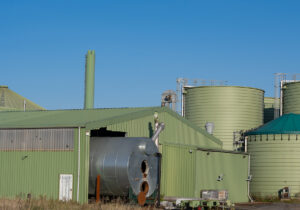bp announces startup of first US biogas plant since Archaea acquisition

Located next to a landfill owned by Rumpke Waste and Recycling, this is the first plant to come online since bp’s acquisition of Archaea in December 2022.
Using the AMD design, the Medora plant captures the gas from Rumpke’s landfill and converts it to electricity, heat or renewable natural gas, which leads to cleaner air, less odour and more sustainable energy when compared with traditional fossil fuel energy.
The Medora plant can process 3,200 cubic feet of landfill gas per minute (scfm) into RNG – enough gas to heat around 13,026 homes annually, according to the EPA’s Landfill Gas Energy Benefits Calculator.
Traditionally, RNG plants have been custom built, but the Archaea Modular Design allows plants to be built on skids with interchangeable components, according to bp. Using a standardised modular design leads to faster builds than previous industry standards, it added.
Starlee Sykes, CEO of Archaea Energy, said: “What we are doing at the Medora plant is phenomenal and it’s just the beginning of what’s to come at Archaea. This is a powerful step forward in our net zero journey to capture landfill emissions and provide customers with lower emission, lower carbon fuel. Our goal is to safely bring several AMD plants online this year. I’m in awe of our team who designed, engineered and built this facility and we can’t wait to bring more online across the US.”
Jeff Rumpke, area president, Rumpke Waste & Recycling, commented: “Our family company is constantly looking for technologies to lessen our overall impact and further our efforts to protect and preserve the environment. The addition of Archaea Energy’s RNG plant at our site will help further reduce emissions and give residents and businesses assurance that their waste is not only being properly disposed of – but also being put to good use.”
With the acquisition of Archaea, bp is now the largest RNG producer in the US, enhancing its ability to support customers’ decarbonisation goals and progressing its aim to reduce the average lifecycle carbon intensity of the energy products it sells.
Bioenergy is one of five strategic transition growth engines that bp intends to grow rapidly through this decade expecting to deliver around $2 billion (€1.9 billion) EBITDA in 2025 and aiming to deliver more than $4 billion (€3.8 billion) in 2030.


























